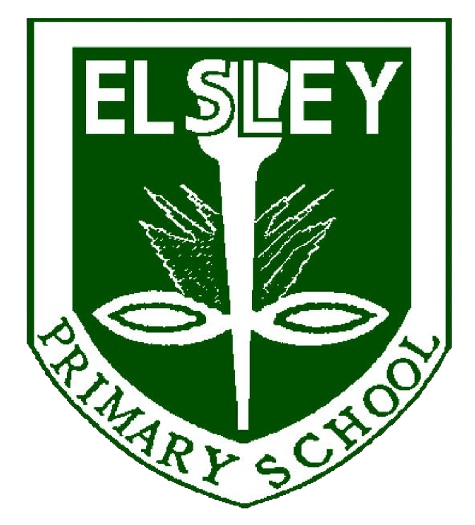French
At Elsley Primary School, we believe that learning a new language opens doors to new cultures and perspectives. Our French curriculum introduces students to the beauty and richness of the French language, helping them develop communication skills, cultural awareness, and a global outlook. From basic greetings to more complex conversations, we ensure that French is taught in an engaging and interactive way by our expert specialist teacher, making language learning fun and accessible for all. We are proud of our pupils’ enthusiasm for French and the confidence they gain in expressing themselves in a new language.
"Learning another language is a great life skill and I love increasing my vocabulary in our fun French lessons"
Intent Statement
Our aim in Foreign Language at Elsley Primary School is to ensure that pupils develop competence and enjoyment in reading, writing and communicating in another language. This enables pupils to communicate in a variety of meaningful exchanges in a language different from their own. Our approach at Elsley weaves in a rich appreciation of a linguistically diverse world, thus developing an intercultural understanding and respect of communities and their different customs. French is taught as our chosen language since it is one of the primary European languages as well as one of the fastest growing languages around the world.
At Elsley, we seek to spark curiosity and foster a positive attitude towards the learning of foreign languages in general. In line with our core values, we aim for our pupils to develop an intrinsic respect and admiration for another language and the culture that surrounds it. Through our Foreign Language curriculum, pupils develop an increased competence in our chosen language, which promotes initiative, confidence, independent learning and embraces the foundations of acceptance in a diverse society. This is particularly important to Brent which is London’s most diverse borough.
Language learning at Elsley strives to prepare pupils to participate in a rapidly changing world with a strong emphasis on laying the foundation for learning further languages, equipping pupils to study and work in other countries.
Our curriculum allows pupils to develop the following disciplinary skills within the domain of Foreign Language:
- Linguistic context
- Listen attentively
- Express ideas and thoughts (written/spoken form)
- Understand & respond (written/spoken form)
- Communicate for practical purposes
Implementation Statement
At Elsley Primary School, pupils are taught French in half termly blocks from KS1 to KS2 by our French Specialist teacher. Our French Curriculum has been carefully designed to meet the National Curriculum requirements and enable our pupils to make progress throughout their learning journey within French.
In lessons, opportunities are created for pupils to listen attentively to spoken language and demonstrate their understanding through their participation and responses using a variety of means. Our pupils are encouraged to develop their speaking and listening skills in every lesson through conversational work, songs, rhymes and stories. Here, topics and stories are used as a stimulus to interest and engage pupils, and opportunities are made for them to share their learning with peers. French grammar and sentence structure are taught specifically and regularly referred to in order to support pupils develop an ever-increasing understanding of what they hear and read in French. Pupils are taught to increasingly notice and understand basic grammar including feminine, masculine and plural forms and key features and patterns of French including accents and word order. They begin to conjugate and learn the key verbs that will help them progress in their learning. As knowledge, understanding and confidence grows, pupils record their learning with increasing complexity, both in spoken and written form.
In line with our Elsley value of respecting other cultures, countries and languages, our French curriculum also provides pupils with the opportunity to understand some of the French cultural customs and explore the similarities and differences between French and Britain, as well as those between French-speaking countries around the world. Our French curriculum is also enriched by, but not limited to: whole school initiatives and assemblies.
We draw upon a number of strategies to support pupil retention of their French learning which include, but are not limited to: using French at other times during the school day, for example, when greeting children and taking the register; working walls; home learning; and French app access.
We aim for our pupils to leave with a sound understanding of language learning and be prepared to continue with language learning at Secondary School.
Impact Statement
At Elsley, pupils are encouraged to evaluate and reflect upon their learning as well as its journey, so that the process of evaluating the effectiveness of our curriculum is collaborative.
In order to judge how successful our curriculum has been designed to promote the learning of the Languages National Curriculum, pupil outcomes are evaluated against our skills and knowledge progression map, teacher assessment for learning and peer and self-assessment. Pupil reflections at the end of summative tests also form a valuable part of this process. These enable us to capture what pupils understand, know and apply and understand about what they have been taught. We also evaluate our Languages curriculum and practices within cross-school collaborations, to ensure that our curriculum design successfully meets and challenges our pupils. In addition, we welcome collaboration with secondary schools to support effective transition in foreign language learning from primary to secondary school.
We aim for our pupils to:
- Understand and respond to spoken and written language from a variety of sources, including authentic texts.
- Speak with increasing confidence, fluency and spontaneity, finding ways of communicating what they want to say, including through discussion and asking questions, and continually improving the accuracy of their pronunciation and intonation.
- Write at varying length, for different purposes and audiences, using the variety of grammatical structures that they have learnt.
- Discover and develop an appreciation of a range of writing in the language studied.


